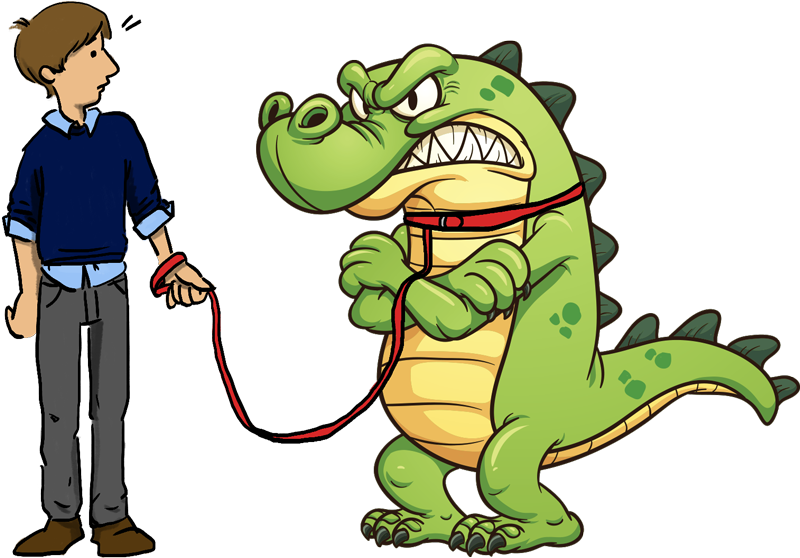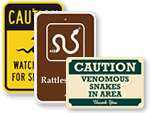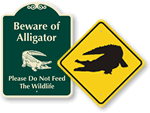Are You Liable for Alligator Bites?
Understand Your Obligations to Protect Your Property from Wild Animals
 So you’ve decided to buy property in an area with dangerous animals. Maybe you’ve moved to Florida, and you’re worried about sharks; or you’ve bought property in Texas, where fire ants are common; or you’ve retired to Arizona, where rattlesnakes abound. You want to protect your property and make sure that visitors are kept safe. What are your obligations?
So you’ve decided to buy property in an area with dangerous animals. Maybe you’ve moved to Florida, and you’re worried about sharks; or you’ve bought property in Texas, where fire ants are common; or you’ve retired to Arizona, where rattlesnakes abound. You want to protect your property and make sure that visitors are kept safe. What are your obligations?
Now, state and local laws vary, but the general baseline is, there are two categories of wild animals: wild animals kept in captivity (like circuses or alligator wrestling venues), and wild animals in nature (like bears or alligators). If you have captive wild animals, you have to take extreme precautions. For wild animals in nature, you have very few obligations.
Lions, Tigers, And Alligators, Oh My!
Let’s start with the first category: wild animals in captivity. If you keep a wild animal on the premises, like the lion at the International Automobile Show, it’s your obligation to protect your patrons. No exceptions, no matter how tame you think the animal is. At the International Auto Show, a supposedly tame lion mauled a model working at the car show and the model sued. In that case, court ruled that the owner is usually liable for any harm caused by the animal, even if the owner thought the wild animal is docile. This applies to almost all kinds of wild animals, whether lions, tigers, bears, elephants, wolves, or monkeys. Wild animals are unpredictable and dangerous, so “one who keeps a tame bear upon his premises … is liable to anyone whom the bear may maul or bite, even though he has taken every precaution to control it.”
This applies especially where you bring non-native wild animals outside of their normal ranges. (Canadian cougars don’t normally live in Ohio, for example.) Because no one’s expecting non-native animals, they pose a large hazard to the public. This means that you should take every safety precaution you can to protect visitors.
$5 Sign, $5 Million Lawsuit
Now, as to wild animals in nature. When native wild animals attack within their native ranges, landowners aren’t normally liable. But there’s an exception, where exceptionally careless landowners can be held liable. When these three things apply, you can be sued for negligence: (1) you knew, or should have known, that there’s a danger of wild animal attacks; (2) the danger of wild animal attacks is a hidden hazard that a visitor wouldn’t have recognized until it was too late; and (3) you didn’t reasonably try to protect them from that hazard.
In nearly all cases, wild animals in their natural habitats aren’t “hidden hazards” at all. For example, if you live in Texas and one of your guests catches Lyme disease from a tick bite, the sad truth is, ticks are native to Texas and it’s the guest’s responsibility to protect against them. The same goes for injuries caused by sharks in Florida, fire ants in Texas, or elk in Arizona.
There’s one more thing you should know. If you do decide to protect your property against wild animals, you should make sure that you do a good job of it. The very act of taking precautions means that you (1) know there’s a potential for wild animal attacks; and (2) recognize a visitor might not be aware of the danger. These safety measures can be very useful when tragedy strikes. For example, one Georgia homeowners association owned a lagoon, regularly removed alligators from its property, and warned its residents of the danger of alligator attacks. Then, when an alligator mauled an elderly woman to death, the association was protected from the lawsuit filed by the woman’s estate.
That’s the gist of it. If you own wild animals, control them so they don’t hurt your guests; if there is native wildlife around, you normally aren’t responsible unless you know there’s a hidden hazard and don’t act on it. If you do take precautions, be thorough.


